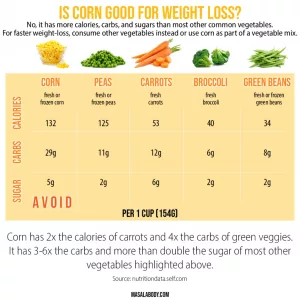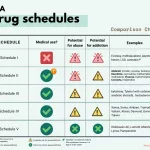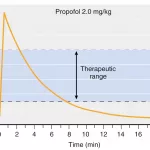Research on the health advantages of eating cayenne peppers is limited, but incorporating them into your meals may still be worthwhile.
Cayenne peppers, classified as Capsicum annuum, are members of the Solanaceae (nightshade) family, which also includes tomatoes, eggplant, and potatoes.
They are a variety of chili pepper and have a fairly hot, pungent taste due to a compound called capsaicin.
Capsaicin, the substance responsible for cayenne’s heat, has been associated with some health effects when delivered as a supplement. However, because the research often focuses on capsaicin supplements rather than the pepper itself, more targeted studies are necessary.
Still, adding cayenne to your diet could offer several health-related advantages.
Below are six possible benefits of cayenne pepper, along with practical suggestions for using it.

1. Supplies several key nutrients
Cayenne and other hot peppers are nutrient-dense and can be a healthful component of your diet.
Nutrition facts for one 45-gram red hot chili pepper:
- Calories: 18
- Protein: 0.8 grams
- Fat: 0.2 grams
- Carbs: 3.9 grams
- Fiber: 0.7 grams
- Vitamin C: 72% of the DV
- Provitamin A: 48% of the DV
- Vitamin B6: 13% of the DV
- Vitamin K: 5% of the DV
As shown, a single chili pepper can contribute a noteworthy amount of nutrients.
Chili peppers such as cayenne are especially rich in provitamin A carotenoids and vitamin C.
Vitamin A comes in two main forms: provitamin A (found in plant foods) and preformed vitamin A (found in animal foods).
Provitamin A carotenoids present in cayenne include alpha-carotene and beta-carotene, which the body can convert into active vitamin A.
Vitamin A is crucial for many bodily functions, including (, ):
- immune system performance
- vision
- reproductive health
- growth and development
- bone maintenance
Additionally, hot peppers like cayenne are loaded with vitamin C.
One 45-gram chili pepper supplies about 72% of the recommended daily intake of vitamin C, which supports immune function and is important for collagen formation, iron absorption, and neurotransmitter production.
Cayenne also contributes smaller amounts of B6, vitamin K, potassium, and magnesium.
Although they are nutritious, the intense spiciness of cayenne means most people consume only modest portions. Still, regular small servings could help increase intake of certain nutrients.
SummaryCayenne and other chili peppers are rich in several nutrients, notably vitamin C and provitamin A.
2. A natural source of capsaicin
Many of the health effects attributed to hot peppers stem from capsaicin. Peppers contain several capsaicinoids, with capsaicin being the most prevalent.
When taken in high-dose supplements or used topically, capsaicin may provide several benefits, such as (, , , , ):
- pain relief
- enhanced athletic performance
- reduced blood sugar levels
However, studies on capsaicin supplements are limited, and stronger evidence supports topical capsaicin products like creams.
Research also indicates capsaicin has anti-inflammatory and antioxidant activity, but it’s unclear whether the amounts present in normal servings of cayenne deliver clinically meaningful effects.
Although capsaicin in cayenne likely has benefits, more research is required to understand the impact of capsaicin from typical dietary portions of cayenne peppers.
SummaryCapsaicin in cayenne may offer health benefits, but existing research largely examines high-dose supplements or topical forms rather than the amounts found in typical servings of hot peppers.
3. Contains protective plant compounds
Beyond capsaicin, cayenne peppers include several other plant compounds that may offer antioxidant and anti-inflammatory benefits.
Examples include:
- flavonoids
- vitamin C
- carotenoids
These substances can help shield cells from oxidative stress — an imbalance between damaging free radicals and antioxidant defenses.
A 2015 study reported that Capsicum annuum varieties, including certain cayenne types, exhibited higher antioxidant activity compared with other pepper species like habanero (C. chinense) (19).
Eating a diet rich in nutrient-dense, antioxidant-packed foods such as peppers may bolster overall health and enhance the body’s antioxidant defenses.
Research shows that diets abundant in plant foods with diverse antioxidants may lower the risk of conditions like heart disease and could contribute to longer life expectancy.
Including cayenne peppers along with a variety of fruits and vegetables is a sensible way to supply your body with protective plant compounds and essential nutrients.
SummaryAlongside capsaicin, cayenne peppers are a source of carotenoids and flavonoids, which may have anti-inflammatory and antioxidant effects.
4. Habitual consumption of hot peppers may support general health
Although direct research on cayenne is limited, some studies link regular consumption of hot peppers in general with better health outcomes.
Scientists believe that compounds in hot peppers, including capsaicin, may reduce inflammation and oxidative damage, potentially lowering risk for conditions such as heart disease.
For instance, a 2019 Italian study with 22,811 adults found that habitual chili pepper consumption was associated with a reduced risk of death from cardiovascular causes.
Some evidence suggests capsaicin may improve elements of cardiovascular health, including blood vessel function, but additional research is needed to confirm these effects.
A comprehensive 2021 review of four observational studies reported an association between chili pepper consumption and a lower risk of death from all causes.
Other research has also connected chili intake with decreased all-cause mortality.
While these results are promising, they don’t imply that eating a chili every day will prevent chronic disease. They simply indicate correlations observed in certain studies.
To improve health, focus on your overall lifestyle and diet rather than relying on a single food. Eating more fruits and vegetables, getting adequate sleep, managing stress, and exercising regularly matter far more than adding one “superfood.”
SummarySome studies associate frequent hot pepper consumption with lower risks of all-cause and heart-related mortality.
5. Adds flavor without extra salt
While moderate salt intake is acceptable, excess sodium can harm health and raise the risk of conditions like high blood pressure and heart disease.
Using cayenne to season dishes may help reduce reliance on added salt.
A 2017 study showed that participants who added cayenne to soup felt less inclined to add salt, experienced reduced hunger, and reported greater fullness one hour after the meal (28).
However, the same study noted an increased desire for sweets and fats after consuming cayenne, so further research is necessary to clarify how cayenne influences taste and cravings.
If you tend to season with salt, try sprinkling a pinch of powdered cayenne to see if it helps you cut back.
Fresh, finely diced cayenne also works well in recipes like omelets and salad dressings to minimize added salt.
SummaryUsing cayenne pepper may help you use less added salt, which could be beneficial for health.
6. Highly adaptable in cooking
Cayenne pepper can be used in many culinary applications.
Use fresh cayenne or add it to cooked dishes for a spicy lift.
Powdered cayenne is versatile and works in both sweet and savory recipes.
Ideas for using cayenne:
- Add finely chopped fresh cayenne to stir-fries.
- Use a pinch of powdered cayenne in stews, chilis, and soups.
- Incorporate powdered or fresh cayenne into baked goods such as cornbread or chocolate cake.
- Mix a small amount into egg dishes like frittatas and omelets.
- Sprinkle a little cayenne into hot chocolate for a spicy twist.
- Use fresh or powdered cayenne in dressings and marinades.
- Add cayenne to homemade fire cider.
- Make simple hot sauce using cayenne and a few other ingredients (recipe).
If you’re new to hot peppers, begin with a small amount — cayenne is potent and can dominate a dish if overused.
When handling cayenne or other hot peppers, avoid touching your eyes; they can irritate skin and mucous membranes. Wash your hands thoroughly after handling.
Also, if spicy foods typically upset your stomach or cause heartburn, you may want to limit cayenne, particularly in large quantities.
Normal culinary amounts of fresh or powdered cayenne are considered safe. However, high-dose cayenne supplements have been linked to serious adverse effects in some cases, including irregular heartbeat and raised blood pressure.
There are reports of heart attacks tied to high-dose cayenne supplements, so it’s wise to avoid such concentrated products.
SummaryCayenne is useful in many recipes and safe in typical dietary amounts, but high-dose supplements have been associated with serious side effects in some individuals.
The bottom line
Cayenne pepper is a moderately hot pepper that provides notable nutrition.
It is an excellent source of provitamin A and vitamin C and contains several protective plant compounds, such as capsaicin and flavonoids.
Some studies linking hot pepper consumption to lower mortality rates and potential heart health benefits are encouraging, but research specifically targeting cayenne is limited and further investigation is required.
If you enjoy spicy flavors and want a new way to season your food, try incorporating fresh or powdered cayenne into your next dish.

























Leave a Reply
You must be logged in to post a comment.